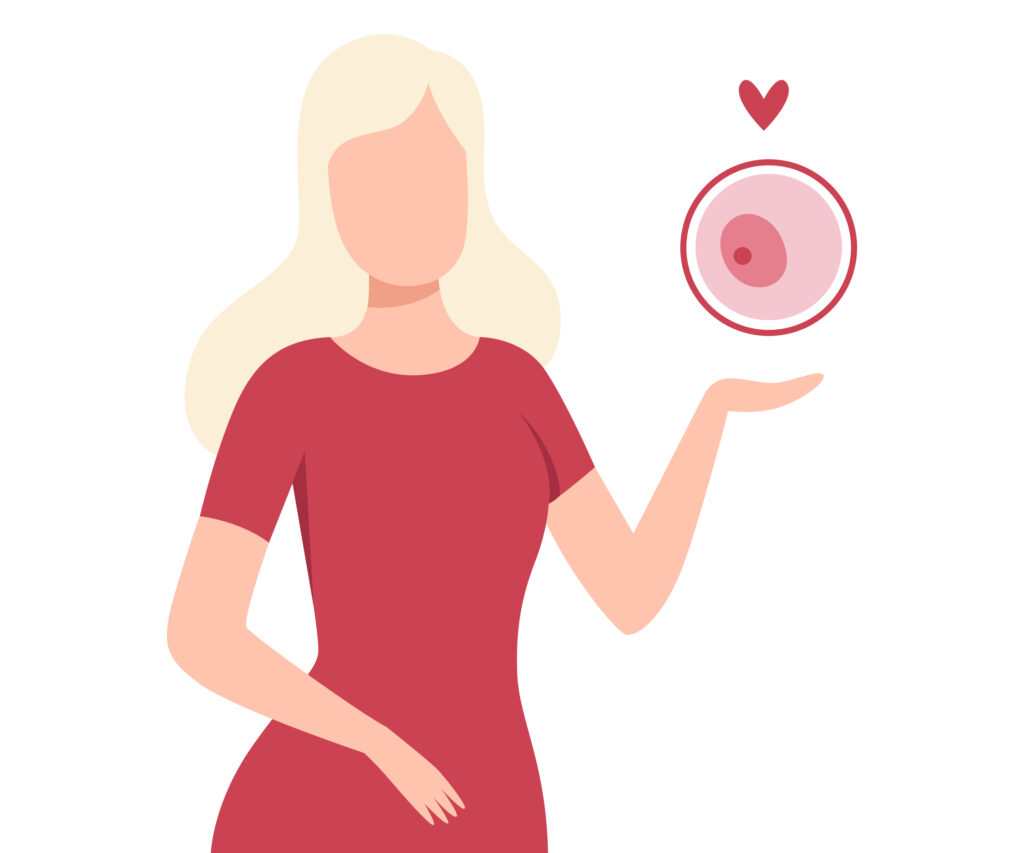A Quick Introduction to Embryo Donation
First, what exactly is embryo donation? Essentially, embryo donation provides an opportunity for leftover embryos from IVF treatment to be donated, usually through an agency or intermediary, to be used by other hopeful parents. In this blog, we’re going to dive into 5 things you may not know about embryo donation!
Overview:
1. It’s Different Than Embryo Adoption
2. Where Do the Embryos Come From?
3. There Are Options for Open, Anonymous, or “Semi-Anonymous”
4. You May Be Able to Choose the Gender
5. You Can Have the Opportunity for Genetic Siblings
1. It’s Different Than Embryo Adoption
The terms embryo donation and embryo adoption are often wrongly confused and sometimes even used interchangeably. Perhaps this is because it may be assumed that “embryo donation” only refers to the patients who are donating embryos, and “embryo adoption” refers to the recipients. However, embryo donation can also be a process of receiving donated embryos. There are many programs for both embryo donation and embryo adoption, depending on which clinic or agency you choose.
Although both options have the same end goal of achieving a healthy pregnancy using donor embryos, the processes have some major differences.
Essentially, embryo adoption views the embryo as a child, requiring the recipients to go through a comprehensive legal process to “adopt” the embryo, whereas embryo donation views the embryo as a gift that is being donated and the recipients are accepting ownership.
Embryo donation is a faster process and often less expensive than embryo adoption. For instance, during an embryo adoption process, the intended parent(s) are required to complete a home study. A home study includes educational components as well as interviews and background checks, typically adding 2-3 months to the cycle and costing in the range of $2,000 – $3,500.
Contrarily, embryo donation does not require a home study and is a relatively straightforward process, generally taking a total of 2-3 months from the time you secure an embryo to the embryo transfer.
2. Where Do the Embryos Come From?
Donated embryos are high-quality embryos that were created during standard IVF treatments. It’s actually very common for patients to have leftover embryos after they have completed their IVF treatments. This happens because the goal at the beginning of the IVF process is to create as many healthy embryos as possible to have the best chance at achieving a pregnancy. However, once patients have successfully grown their families and have no desire for more babies, they are faced with the decision of what to do with the remaining embryos.
It’s a tough decision to make. Many patients will leave their embryos cryopreserved in storage for quite some time before making their decision on what to do with leftover embryos after IVF. Ultimately, patients choose to donate their embryos because they wish to help another couple or individual have the opportunity to pursue their dreams of parenthood.
Once a patient has made this decision, the embryo donation agency may create an online profile for the embryos to be listed on their database and viewed by interested recipients.
3. There Are Options for Open, Anonymous, or “Semi-Anonymous”
At Donor Nexus, we proudly offer both anonymous and open donations to accommodate the wishes and desires of embryo donors and recipients.
While most intended parents opt for anonymous, open donations are becoming a more popular option and we’re proud to have a good selection to accommodate both preferences. At the time of writing this blog, currently, 80% of the donor embryo profiles listed in our database are for anonymous donations.
We also arrange what we like to call “semi-anonymous” donations. When donors and recipients agree to remain anonymous, yet want to have at least one interaction prior to the transfer, we are happy to facilitate a non-identifying Zoom call with both parties. In our experience, this is a great solution as it satisfies any lingering curiosity about the couple or individual on the other end and allows both parties to feel confident in their decision.
We work closely with embryo donors and recipients to tailor our services to fit the specific desires of all parties involved. For instance, we ask embryo donors if they have any stipulations or preferences for the embryo recipients, such as religious beliefs. This allows donors peace of mind in knowing that their embryos will be matched with intended parent(s) who meet their requirements.
By offering this flexibility within our program offerings, we’ve pioneered an industry-leading Embryo Donation Program.
Lastly, we also offer an Independent Match Embryo Coordination Program to facilitate communication between embryo donors and recipients who have found each other on their own.
4. You May Be Able to Choose the Gender
Before the embryo transfer, the intended parent(s) have the advantage of learning about the quality of existing embryos and the number of embryos that will be transferred. At the time of writing this, about 30% of the donor embryo profiles on the Donor Nexus database have already had genetic testing performed.
This is especially important for intended parents who wish to know the gender, as the sex chromosomes are determined through genetic testing and listed on the online profile. If genetic testing has not been performed on the embryos, you will have the opportunity to have it done once you have secured the embryos.
5. You Can Have the Opportunity for Genetic Siblings
It is common for more than one donor embryo to be available from the same donors, so there’s an opportunity for recipients to have more than one child with similar genetics. Most donor embryo profiles in our database have multiple embryos available from the same genetic mother and genetic father. In some cases, there are as many as 10-11 embryos available. This provides a wonderful opportunity for the intended parent(s) who desire for their children to be genetic siblings.
A Unique Path to Parenthood
Ultimately, embryo donation has paved the path to parenthood for many same-sex couples, infertile couples, or individuals seeking a single-parent family. This is all made possible because of the generosity of strangers who decided to donate their leftover embryos after they have completed their IVF treatment. To learn more about using donated embryos or donating leftover embryos, contact the Donor Nexus team and we will be happy to assist you!

Today’s guest author is Lucy Solie-Vilker, Program Director of Donor Nexus, an international egg and embryo donation agency. Over the past decade, Lucy has pioneered several successful programs to provide innovative solutions for patients, including an industry-leading embryo donation program, an international frozen donor egg bank, several fresh egg donation programs, an extensive online donor database, and the first-ever donor database app. Since being established in 2012, over 500 babies have been brought into the world through Donor Nexus programs!

